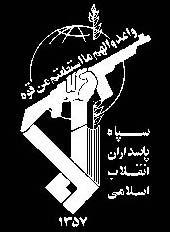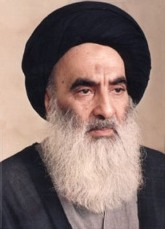Teachers protest against Hashemi Rafsanjani
Hundreds of teachers staged a sit-in demonstration in front of Majlis building today, in protest of the Assembly of Experts failure to address their demand for a pay increase. The teachers hold the Assembly of Experts Chairman, Akbar Hashemi Rafsanjani, personally responsible.
It has been reported in the Western media that Hashemi Rafsanjani is in ascendancy and that President Ahmadinejad has become increasingly unpopular. In fact, the reverse is true, Ahmadinejad is more popular on the Street now, than he was when he gained 17 million votes in the 2005 presidential election, defeating Hashemi Rafsanjani. It is in the Majlis that Ahmadinejad is deeply unpopular - he always was - he represents neither the Conservative nor Reformist wings. He is Iran's political outsider.
In the Western media, Iranian politics is reduced to Conservatism versus Reformism -or "Mullahs" versus "secularists". Yet the reality is both are from the clerical classes and both support the Islamic revolution and the current Iranian model of Islamic democracy. Where Ahmadinejad differs to the Iranian political elite is that he is of the people and for the people. This in itself antagonises the clerical elite, however his rejection of oligarchy and his avocation of the redistribution of wealth, egalitarianism and ethical trade is an intolerable affront to that elite, which is represented by Hashemi Rafsanjani and Sayyed Mohammad Khatami. The alliance between the two is certainly a threat to Ahmadinejad and Iranian democracy.
However, it is utter nonsense that Iran's current diplomatic confrontations with the West have been instigated or exacerbated by Ahmadinejad; it was Britain, under directions from the United States, that sabotaged the EU troika negotiations with Iran over its nuclear programme, which incidentally the West believes to be a peaceful nuclear programme. The West willfully tried to torpedo the reformists and advance the presidential hopes of Hashemi Rafsanjani in the the belief that Hashemi Rafsanjani was a "pragmatist" (i.e. corruptible) and therefore was more susceptible to Western bribery.
This strategy failed as anyone with an once of intelligence and the slightest knowledge of Iranian politics ought to have foreseen. President Ahmadinejad was elected on domestic issues - the nuclear dispute was not a feature of the 2005 presidential elections. The current confrontation with the West plays to Ahmadinejad's advantage. Iranians have seen a war with the United States and its clients states on the horizon since the invasion of Iraq: it does not unsettle them. To report the ascendancy of Hashemi Rafsanjani or forecast that he will succeed Ayatullah al-Uzma Sayyed Khamenei, as Supreme Leader, as many Western media outlets are doing, is once again, to misread Iranian politics. It is most improbable that the Assembly of Experts would entertain the idea of electing him Supreme Leader, since he does not have the support of the Street and could not command the loyalty of the Basij or Pasdaran.







2 comments:
I agree, the inability of the West to accept other civilisation has the impact that the West has so long defined itself against the other, that its own identity - Western civilisation is defined by what it is not; rather than what it is.
For all that is said of equality, we who live in the West are defined by the tone of our skin, perceived ethnicity, nationality and gender, to name but a few. This is fundamentally at odds with the perceived values of Western liberalism. Thus relations with the rest of the World are based on the supremacy of an ideology that does not hold true even in the West.
Perhaps but instead of the trade union movement there is religion.
Post a Comment